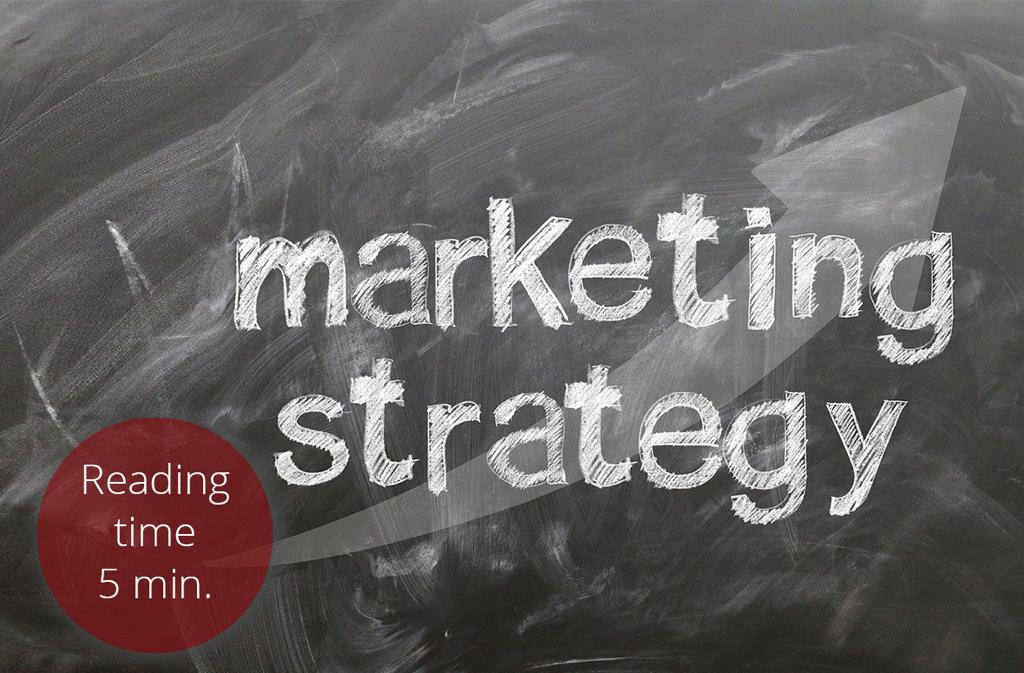The Key Tool in Navigating Cultural Differences
07.11.2019
.jpg)
A few years ago, I was living in Sydney and consulting to a local company, run by two Israeli guys. They wanted to import an innovative beauty product from Israel that was selling across Europe by the millions and seemed like a perfect fit for Australia. After months of due diligence and negotiation, I helped them secure the distribution rights to the product. They had built a website and we were in discussions with wholesalers.
Culturally, doing business in Australia is totally different to Israel. Aussies do not yell, except at the football. Listening is prized; people take turns when speaking, and interrupting is considered rude. I grew up in Australia and South Africa (which is similar), so none of this was new to me, but to my Israeli clients, this was difficult to grasp. The fact that they were living in Sydney wasn’t enough.
Down Under, one of the largest channels for beauty products is through pharmacies, 5,000 locations nationwide to be exact. I was new to this sector but knew how to network and had made some strong contacts. With carefully scripted phone calls and emails, I managed to get my client a meeting with the largest pharmacy wholesaler in the country. So far, so good.
I joined the meeting to help with the negotiation and sale. It started off well - my client, Asher (not his real name) and I, together with the wholesaler’s CEO and CMO. We went through our pitch, showed them some samples with evidence of sales overseas as well as some glowing reviews in top shelf women’s magazines like Vogue and Cosmo. This was a hit just waiting to happen. So we were taken by surprise when the CEO looked up at us and said, “You’re not ready for this market.” Asher responded a little too quickly. “What do you mean ‘not ready’? It’s sold millions of units across Europe.” The CEO quietly repeated himself. “I understand that. But you’re not ready for the Australian market.” Asher shot back. “It’s being carried by three airlines,” he said, “And it’s selling through huge beauty players like Sephora. How can we not be ready?” This went on for another minute or so. I was shocked and so were our potential channel partners across the table. I was kicking Asher under the table. In all my years, I had never seen that sort of heated interaction at a sales meeting. The CEO then got up from his seat and walked out, and I was sure it was over. However, he soon returned with some brochures in his hand and proceeded to show us how their other suppliers presented new products. The A4 fliers were complete with tech specs, customer reviews and fully planned promotional schedules for the next 3 to 6 months. That was what they set as the standard to even be considered - and it was indeed standard across the industry.
The meeting ended, we shook hands and exchanged loose plans to sit down again when we had the required information. It all seemed pleasant enough but I wondered if we had really survived. I told Asher, “I have never seen anyone argue at a sales meeting, ever.” His response was fascinating. “But I wasn’t arguing. I was just telling the truth.” That was my “Aha” moment. I realized that what to Aussies felt like arguing, to Israelis was simply energetic conversation. The way each of the sides perceived the tone in the conversation was simply a world apart.
We created our promotional programs and fliers just like we had promised, but it was too late. We never heard from that company again. The largest wholesaler in the industry was gone, just like that. Although I managed to get my client another wholesaler and the product was soon selling around the country, it was not the same, we had missed our biggest opportunity.
So how should one handle a situation like that? Whether it’s in Australia, the US or the UK, culturally, the principles are the same. Never argue and don’t shoot back. Questions are the answer.. Try to be disciplined in moving straight into questions. For example, “What exactly do you mean by that?” or “Why do you say that?” or “What would you need in order to move forward?.” Once you get your answer, ask even more questions. Explore the details – and listen.
Aside from extracting more information and preventing conflict, asking questions and listening to the answers has another very important effect. They make the other person feel heard - and for us humans, feeling heard makes us feel respected. For this reason, it is a critical element in the art of influence. In his book, “How to Win Friends and Influence People”, Dale Carnegie states that, “The most influential person is a good listener.” It seems so simple, and yet it can be the difference between success and failure. If we had applied this at the meeting, I’m confident we would have gotten the contract.
Whether you’re operating in an unfamiliar country, exploring a new industry or meeting with a potential client, you’re bound to come up against resistance or surprises. How you respond will determine how the other responds. A disciplined transition to questions, followed by deep listening, will buy you time to think, get you the information you need and make the other person feel respected. That is why this is considered the single most important tool in the art of influence.
Eli Ezra is a specialist in professional relationships and communication strategy. He consults to startups and global tech giants alike on areas including sales, presentations, conflict management and negotiation. He can be contacted at linkedin.com/in/eliezra/.
Culturally, doing business in Australia is totally different to Israel. Aussies do not yell, except at the football. Listening is prized; people take turns when speaking, and interrupting is considered rude. I grew up in Australia and South Africa (which is similar), so none of this was new to me, but to my Israeli clients, this was difficult to grasp. The fact that they were living in Sydney wasn’t enough.
Down Under, one of the largest channels for beauty products is through pharmacies, 5,000 locations nationwide to be exact. I was new to this sector but knew how to network and had made some strong contacts. With carefully scripted phone calls and emails, I managed to get my client a meeting with the largest pharmacy wholesaler in the country. So far, so good.
I joined the meeting to help with the negotiation and sale. It started off well - my client, Asher (not his real name) and I, together with the wholesaler’s CEO and CMO. We went through our pitch, showed them some samples with evidence of sales overseas as well as some glowing reviews in top shelf women’s magazines like Vogue and Cosmo. This was a hit just waiting to happen. So we were taken by surprise when the CEO looked up at us and said, “You’re not ready for this market.” Asher responded a little too quickly. “What do you mean ‘not ready’? It’s sold millions of units across Europe.” The CEO quietly repeated himself. “I understand that. But you’re not ready for the Australian market.” Asher shot back. “It’s being carried by three airlines,” he said, “And it’s selling through huge beauty players like Sephora. How can we not be ready?” This went on for another minute or so. I was shocked and so were our potential channel partners across the table. I was kicking Asher under the table. In all my years, I had never seen that sort of heated interaction at a sales meeting. The CEO then got up from his seat and walked out, and I was sure it was over. However, he soon returned with some brochures in his hand and proceeded to show us how their other suppliers presented new products. The A4 fliers were complete with tech specs, customer reviews and fully planned promotional schedules for the next 3 to 6 months. That was what they set as the standard to even be considered - and it was indeed standard across the industry.
The meeting ended, we shook hands and exchanged loose plans to sit down again when we had the required information. It all seemed pleasant enough but I wondered if we had really survived. I told Asher, “I have never seen anyone argue at a sales meeting, ever.” His response was fascinating. “But I wasn’t arguing. I was just telling the truth.” That was my “Aha” moment. I realized that what to Aussies felt like arguing, to Israelis was simply energetic conversation. The way each of the sides perceived the tone in the conversation was simply a world apart.
We created our promotional programs and fliers just like we had promised, but it was too late. We never heard from that company again. The largest wholesaler in the industry was gone, just like that. Although I managed to get my client another wholesaler and the product was soon selling around the country, it was not the same, we had missed our biggest opportunity.
So how should one handle a situation like that? Whether it’s in Australia, the US or the UK, culturally, the principles are the same. Never argue and don’t shoot back. Questions are the answer.. Try to be disciplined in moving straight into questions. For example, “What exactly do you mean by that?” or “Why do you say that?” or “What would you need in order to move forward?.” Once you get your answer, ask even more questions. Explore the details – and listen.
Aside from extracting more information and preventing conflict, asking questions and listening to the answers has another very important effect. They make the other person feel heard - and for us humans, feeling heard makes us feel respected. For this reason, it is a critical element in the art of influence. In his book, “How to Win Friends and Influence People”, Dale Carnegie states that, “The most influential person is a good listener.” It seems so simple, and yet it can be the difference between success and failure. If we had applied this at the meeting, I’m confident we would have gotten the contract.
Whether you’re operating in an unfamiliar country, exploring a new industry or meeting with a potential client, you’re bound to come up against resistance or surprises. How you respond will determine how the other responds. A disciplined transition to questions, followed by deep listening, will buy you time to think, get you the information you need and make the other person feel respected. That is why this is considered the single most important tool in the art of influence.
Eli Ezra is a specialist in professional relationships and communication strategy. He consults to startups and global tech giants alike on areas including sales, presentations, conflict management and negotiation. He can be contacted at linkedin.com/in/eliezra/.











